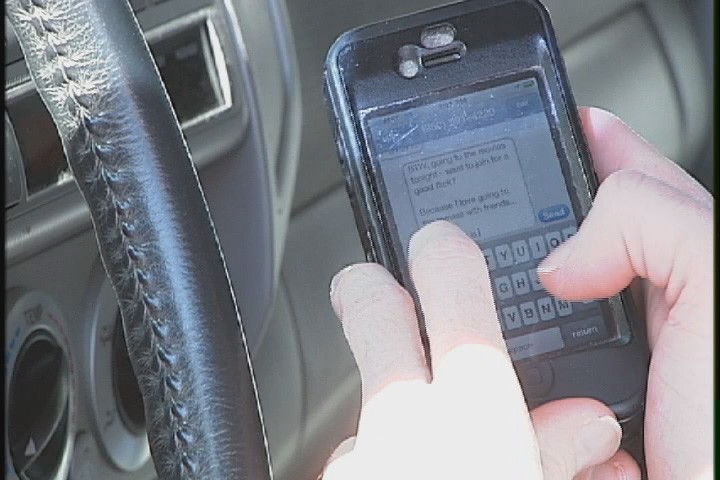On April 8, 2013, the Florida Judiciary Committee approved by unanimous vote a bill (SB 52) that would ban texting while driving statewide for the first time in Florida. The bill cleared The Senate Transportation Committee last February, cleared the Senate Communications, Energy, and Public Utilities Committee in March and this week cleared the Senate Judiciary Committee. The bill can now be taken to Florida’s Senators for a final vote.
If the bill passes the Senate and the House, this will mark the first time that a ban on texting while driving becomes in effect (on October 1, 2013) after several years of futile attempts to ban texting behind the wheel.
While any ban on texting and driving is a step in the right direction, the proposed law is so meaningless in its reach that it will sadly create absolutely no incentive or deterring effects to dissuade drivers to stop texting while driving throughout the State.
 Texting statistics are staggering: There are 320 million wireless subscribers in the United States. 184,300,000,000 texts are sent every month, which means that the average American wireless subscriber sends 576 text messages each month. Concretely, this means that a significant group of people texts not only all the time, but everywhere, including while they are driving. For that group to be deterred, a ban on texting while driving must be as tough and without nuance as possible.
Texting statistics are staggering: There are 320 million wireless subscribers in the United States. 184,300,000,000 texts are sent every month, which means that the average American wireless subscriber sends 576 text messages each month. Concretely, this means that a significant group of people texts not only all the time, but everywhere, including while they are driving. For that group to be deterred, a ban on texting while driving must be as tough and without nuance as possible.
Unfortunately, the proposed Florida ban is neither. The proposed Florida law is not a handheld ban (unlike the current law in 10 other states). The proposed Florida law is not a ban on any kind of cell phone use. The proposed Florida law is the least restrictive and least deterring piece of legislation that can be technically called ‘a ban’.
Proposed Florida Law:
The new bill would prohibit a person to operate a motor vehicle while manually typing or entering multiple letters, numbers, symbols, or other characters in a cell phone, or sending or reading data on the cell phone for the purpose of non-voice interpersonal communication. The bill specifies further that for the purpose of this new law, a stationary vehicle (stopped at a red light for instance) is not considered an operated vehicle, and therefore the prohibition does not apply. In other words, any driver can text while behind the wheel as long as their vehicle is not moving.
As redacted today, the law does not impose a handheld ban throughout the State of Florida. This means that a driver can lawfully enter a phone number while stopped and carry on a conversation while driving with one hand. The law also fails to impose restrictions for the use of handheld device by any groups. 35 States have banned the use of handheld devices for novice drivers (which typically means drivers under the age of 18 or drivers with a learner or intermediate’s license.)
A Secondary Offense?
As limited as the proposed ban is, its greatest shortcoming are the penalties associated with any violation of the legislation:
A penalty for a first violation of the prohibition is a non-moving violation with a fine of $30. If a person commits a second violation of the prohibition within 5 years after the first violation, the penalty is increased to a moving violation resulting in 3 points being assigned to the person’s driver license and a fine of $60.
The overarching limitations with the new law is the decision by Senator Nancy Detert, who introduced the bill, to define a violation of the ban as a secondary offense as opposed to a primary offense. Among the 39 States with a text messaging ban, only 3 have made a violation of the law a secondary offense.
What is a secondary offense? A secondary offense is not a traffic violation that allows a police officer to pull over a driver. To be pulled over, a person must have committed a primary offense. In other words, the new law would not allow a police officer to pull over a person who is blatantly texting or typing on their cell phone while driving if they are not doing anything else that would warrant a police officer to pull them over (such as speeding or rolling a stop sign, etc.)..
The USDOT has drafted a sample texting while driving law which imposes much greater penalties for offenders, including repeat offenders. More importantly, in the USDOT sample law, if an offense results in death or a serious injury
In other words, a person who openly violates the ban will never be deterred from changing their behavior because the police cannot stop them for texting while driving alone. If the ban is voted as redacted today, it will be utterly inefficient, will not change the behaviors, and will ultimately fail to make the roads any safer.
Ira Leesfield has been at the forefront of this issue for years, having represented multiple people and their family who fell victim to a distracted driver, too busy texting or reading someone on their phone. Read Ira Leesfield’s latest article on this issue: Make the right call on texting and driving.
Article published in the Miami Herald: Texting and driving a costly business risk
Speech written and delivered at the American Association for Justice in 2010: Driving + Cell Phones = Bad Call
 Florida Injury Lawyer Blawg
Florida Injury Lawyer Blawg


